Henrietta Farr: A Day in the Life of an Environmental Scientist
Science Alum Henrietta Farr is undertaking a graduate program with VicRoads (now part of the Department of Transport) while directing Vocal Vibes, an a cappella women’s choir, on the side. Find out how she keeps her love of music and nature alive in and outside of work.
Out of the comfort zone
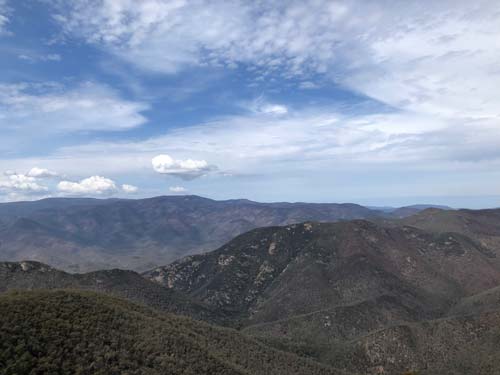 After graduating, Henrietta was faced with a decision. She had just received two second-round offers for graduate programs: one from BHP and one from VicRoads.
After graduating, Henrietta was faced with a decision. She had just received two second-round offers for graduate programs: one from BHP and one from VicRoads.
“I love rocks, but wasn’t sure if I wanted to go into mining,” she tells us. “While the BHP offer was for a role much more suited to my geology degree, I have invested significantly in hobbies here in Victoria and felt really comfortable that VicRoads would embrace all of those aspects of my life.”
“Both environmental science and geotechnical engineering centre around understanding earth processes, which is what interested me about geology in the first place. Geotechnical engineering has been a stretch for me but it’s good to get out of your comfort zone.”
The benefits of a grad program
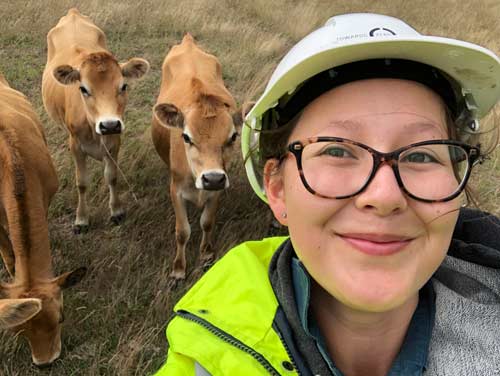 “The VicRoads graduate program is 18 months and usually comprises three six-month rotations, including one regional rotation,” Henrietta says.
“The VicRoads graduate program is 18 months and usually comprises three six-month rotations, including one regional rotation,” Henrietta says.
After an initial rotation in the Environmental Stream as an Environmental Officer, Henrietta’s second rotation has been a year-long placement in Geotechnical Services.
"I know a lot more about geology than most engineers, but I started with no formal engineering training so this was an opportunity that may not have been available to me were it not for the graduate program.”
Henrietta recommends the rotation-style graduate program to those looking to enter a field. It has helped her to develop a well-rounded skillset and diverse experiences across the business.
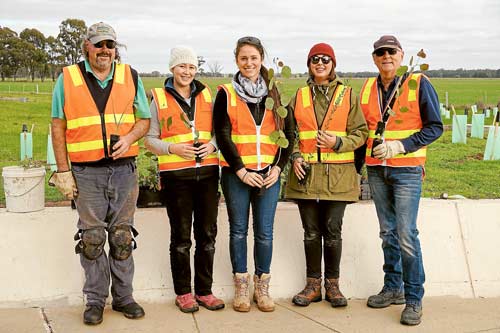 “We have a fantastic graduate coordinator who has made sure we have access to executive mentors, in-person and online training and a good network of peers to call on,” Henrietta explains. “During my time here, VicRoads has merged with PTV, so now there are even more possible pathways.”
“We have a fantastic graduate coordinator who has made sure we have access to executive mentors, in-person and online training and a good network of peers to call on,” Henrietta explains. “During my time here, VicRoads has merged with PTV, so now there are even more possible pathways.”
Nature as your office
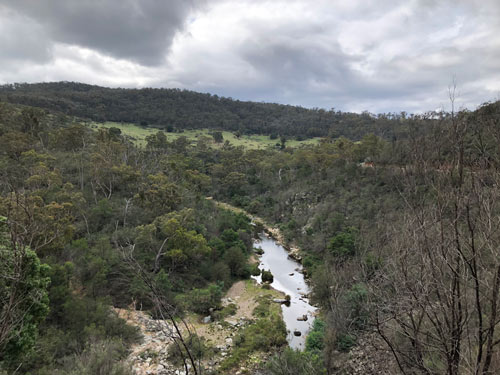 Henrietta’s team services south-eastern metropolitan Melbourne and Gippsland.
Henrietta’s team services south-eastern metropolitan Melbourne and Gippsland.
“I have discovered many amazing places in Victoria that I hadn’t been before,” Henrietta tells us. “Over a usual month I might spend 2-3 weeks at my desk in our Burwood office, a few days hot-desking at our other metropolitan offices, and up to a week in outer metropolitan Melbourne or Gippsland on field work.”
As a keen landscape photographer, this has allowed Henrietta to capture some beautiful scenery.
“It’s fantastic when the weather is nice but plenty of days are rainy or freezing. When we did the post-bushfire inspections it was hot and there was still a lot of smoke around, so there are pros and cons.”
Bushfires
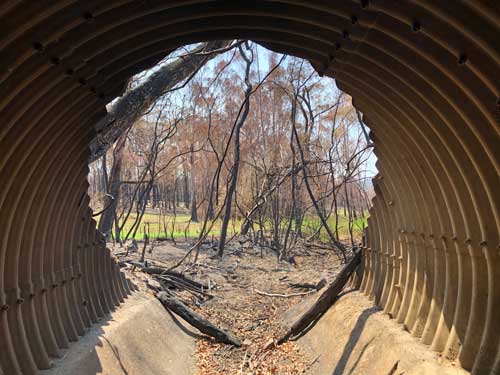 After the bushfire crisis of 2019-2020, Henrietta’s team was called in as soon as it was safe to advise on re-opening the road network. It meant that she saw firsthand the impact of the fires on communities.
After the bushfire crisis of 2019-2020, Henrietta’s team was called in as soon as it was safe to advise on re-opening the road network. It meant that she saw firsthand the impact of the fires on communities.
“One of the bakery owners told us how difficult it has been losing their peak summer income,” Henrietta explains. “Many small business owners were just scraping by after the bushfires and social distancing has further restricted tourism.” Her advice? “I think online shopping can be a great way to support bushfire-affected communities.”
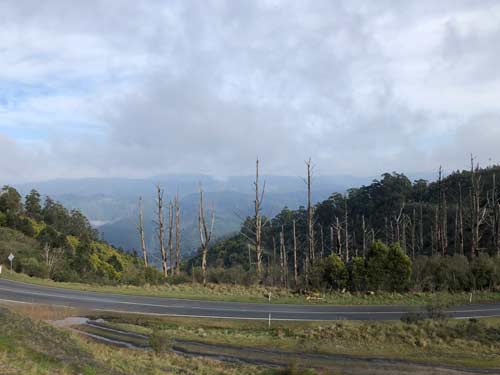 While the long-distance field work is on hold for the moment, Henrietta’s team are still doing inspections closer to home. While what she faces out on the field is often a grim reality, Henrietta tries to see the silver lining in each day.
While the long-distance field work is on hold for the moment, Henrietta’s team are still doing inspections closer to home. While what she faces out on the field is often a grim reality, Henrietta tries to see the silver lining in each day.
“The days out definitely help with cabin fever,” she says.
Consider planting natives
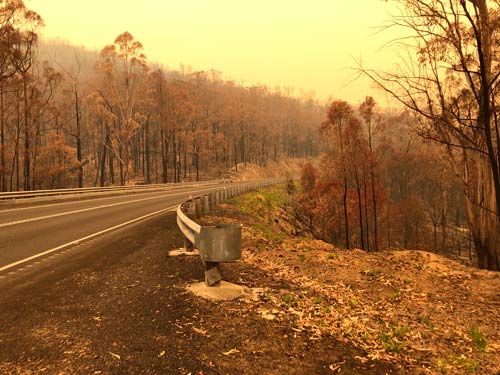 Being out in nature for work has also made Henrietta more aware of the impact we are having on plants and animals.
Being out in nature for work has also made Henrietta more aware of the impact we are having on plants and animals.
“Working in transport has opened my eyes to the level of vegetation removal that has happened over decades of European occupation predominantly for farming,” she says. “It’s now very difficult for native fauna to move around safely to ensure population diversity and access to food sources and habitat. I would love more people to consider planting native varieties in their gardens.”
Henrietta reminds us that even if we only have a tiny balcony, “it still provides a haven for pollinators and birds.”
Vocal Vibes
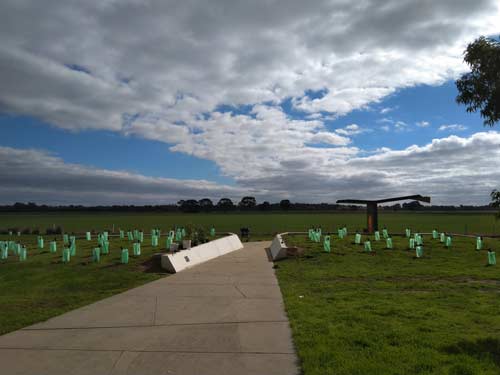 We know the importance and benefits of hobbies and interests outside of work, and it seems Henrietta has nailed this. The multi-talented young scientist has a ‘side gig’ as the musical director of Vocal Vibes, a 40-member women's a cappella chorus.
We know the importance and benefits of hobbies and interests outside of work, and it seems Henrietta has nailed this. The multi-talented young scientist has a ‘side gig’ as the musical director of Vocal Vibes, a 40-member women's a cappella chorus.
“I've been directing for two years now and sang with the chorus for five years prior to applying for the role,” she says. "At the moment, our focus is on staying connected and having a bit of fun.”
While it's a time-consuming hobby, the lifelong international friendships that Henrietta has built make it worth it. Last year, Henrietta won an award that partially funded her attendance at an international education event run by Sweet Adelines in Manchester, UK.
“I'm very lucky to have discovered such a supportive group of women early in my life. Although it's a competitive art form, we're very much a big family.”
Check out Henrietta’s edit of the Vocal Vibes’ digital harmonies on YouTube, and prepare to be amazed!
Connect with Henrietta Farr on LinkedIn, via the Science Alumni group.